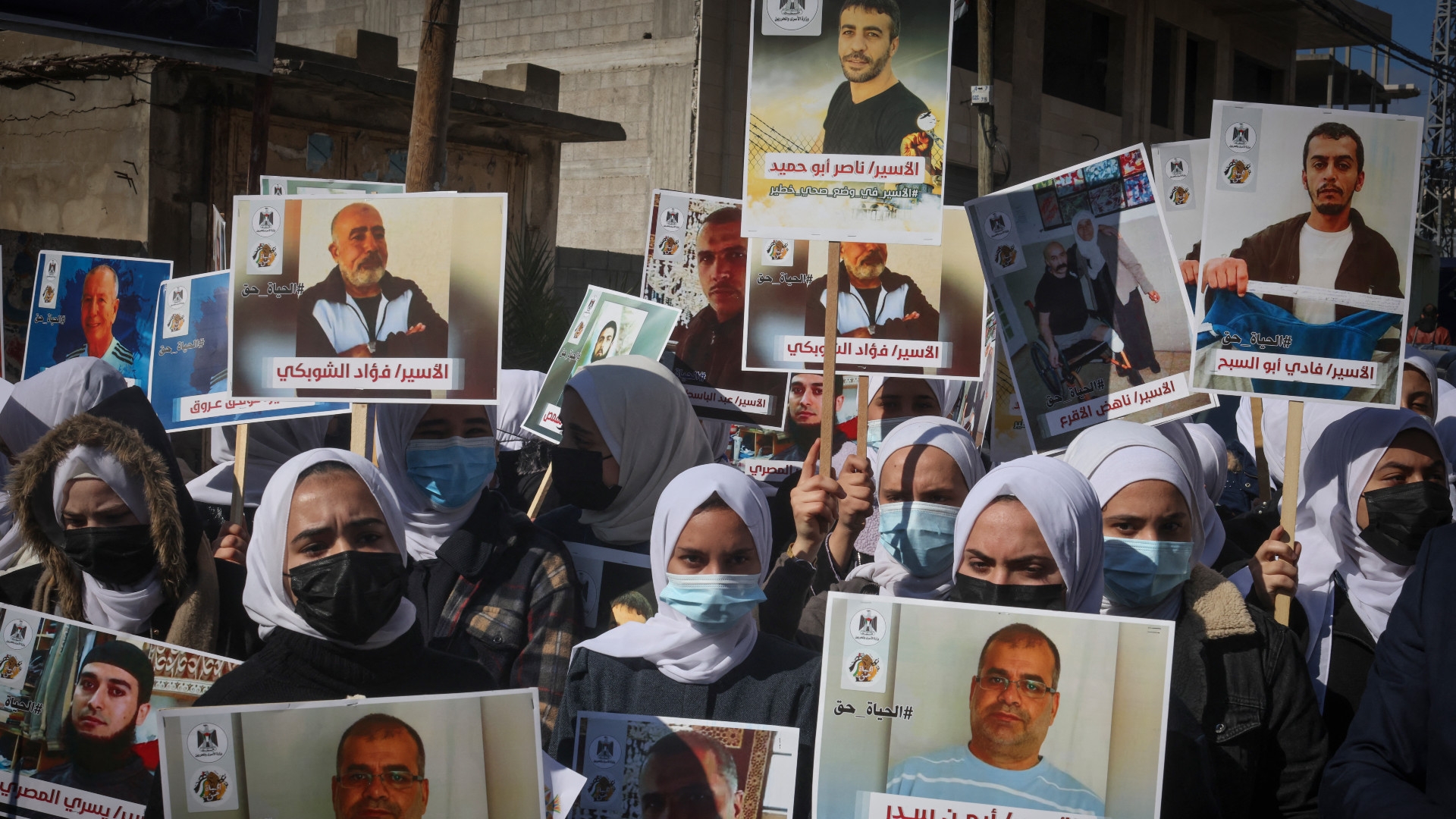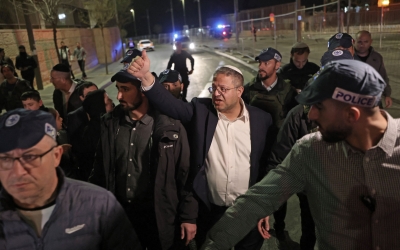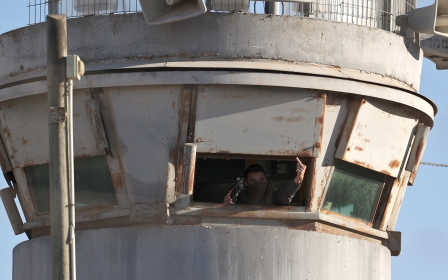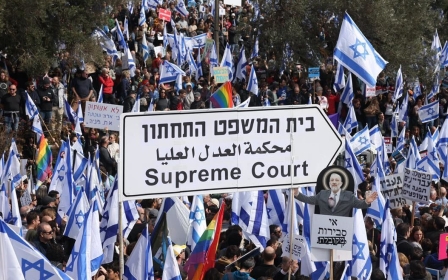Palestinian political prisoners begin mass civil disobedience in Israeli jails

Palestinian political prisoners in jails across Israel have begun a series of mass civil disobedience actions to protest against punitive measures imposed by the country’s new far-right government.
On Tuesday, prisoners launched a campaign in the infamous Nafha prison, in Naqab (Negev) desert in the southeast.
On Wednesday they were joined by Palestinian political prisoners in the jails of Rimon, Ofer, Megiddo, Gilboa and Negev.
The disobedience will culminate in a hunger strike at the start of Ramadan in late March, prisoners say.
"Our only demand is freedom,” the Supreme Emergency Committee for Prisoners said in a statement on Tuesday. “Everyone must get our message and hear our voice, for we can no longer tolerate the violations being committed against us day and night.
New MEE newsletter: Jerusalem Dispatch
Sign up to get the latest insights and analysis on Israel-Palestine, alongside Turkey Unpacked and other MEE newsletters
"This strike, bearing the banner of freedom or martyrdom, is a strike that will be undergone by every capable prisoner regardless of what faction they belong to," the committee added.
"The amount of aggression we have been facing since the start of the year requires all of our people to support us with all means possible.”
'Attack on their lives'
Security Minister Itamar Ben-Gvir wasted no time delivering on his plans to create harsher conditions for Palestinian prisoners in Israeli jails.
On 6 January, one week after assuming the role, he visited Nafha prison, considered one of Israel's most severe for Palestinians, tweeting afterwards: “Those who murdered Jews would not receive better conditions than the existing ones", before stating his aim to pass "the death penalty law for terrorists".
Since then, the Israel Prison Service (IPS) has begun moving inmates and transferring them between the 20 prisons used exclusively for Palestinian political prisoners.
Approximately 140 Palestinian prisoners were transferred to Nafha in January. The prison is notorious for terrible living conditions, which some prisoners describe as "inhumane".
"The situation in prison over the last couple of weeks has been terrible. The transfer of these prisoners is an attack on their lives," the commissioner of Palestinian prisoner affairs, Hassan Abid Rabbah, told Middle East Eye in January.
"Israeli media is talking about transferring 2,000 prisoners between jails. It is a strategy to weaken and destabilise Palestinian resistance within the prisons."
The IPS is also making a point of transferring internal political leaders, such as veteran Fatah leader Marwan Barghouti, with the aim of dissolving Palestinian factions within the prison system. These factions are the foundation of the Palestinian prison society and reflect the political parties outside Israeli prison walls.
In early February, Ben-Gvir ordered the closure of Palestinian prisoner-run bakeries in the country's jails.
His office said in a statement that the move was aimed at denying "benefits and indulgences to terrorists" in Israel, which it said were denied to regular prisoners.
Palestinian prisoners in Rimon and Ketziot security prisons operate in-house bakeries that provide bread to other inmates.
Speaking to Israel Hayom, Ben-Gvir said he "went crazy" after learning of the existence of the bakeries.
"Prisoners cannot get such a privilege. How can they get fresh bread every day? What is this absurdity?" he was quoted as saying.
The move was criticised as vindictive by rights groups and the Palestinian Authority.
Muhammad Shehada, head of communications at Euro-Med Human Rights Monitor, tweeted that the move was "small minded".
"Does he get a kick out of being redundantly cruel?"
Ben-Gvir said on Monday that "terror inmates" would only be given four minutes to shower.
Other punitive measures being discussed include limiting family visits, halting the sale of certain foods and items in the canteens, and restricting families from sending clothes to prisoners.
‘Hunger strike for freedom’
The civil disobedience measures include disobeying prison guards and disrupting security checks.
In response, guards in Nafha cut off the hot water, according to Arab 48.
Prisoners are planning to start a "hunger strike for freedom" beginning on the first day of Ramadan, 22nd March.
Human rights organisations have long condemned Israeli prisons holding security prisoners for their inhuman treatment of Palestinians.
Palestinians have been resorting to hunger strikes since 1968 to fight issues such as solitary confinement, denial of family visits, inadequate medical treatment, and other degrading conditions.
Currently, Israeli prisons are home to 4,780 Palestinian political prisoners, including 160 children and five Palestinian Legislative Council members. All of them will be affected by Israel's implementation of punitive measures.
Middle East Eye delivers independent and unrivalled coverage and analysis of the Middle East, North Africa and beyond. To learn more about republishing this content and the associated fees, please fill out this form. More about MEE can be found here.





